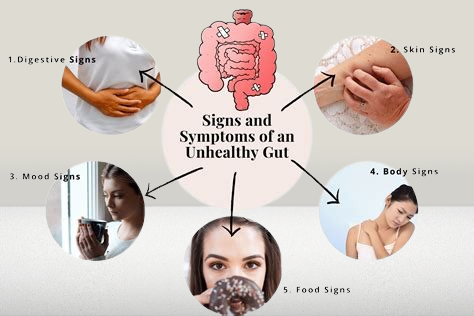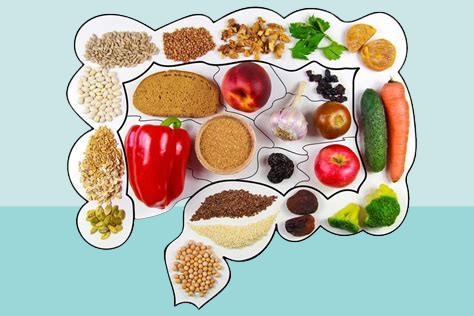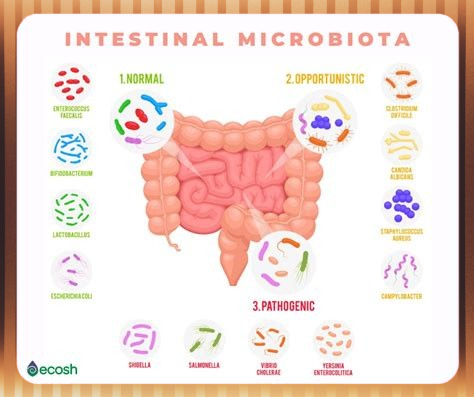Understanding Gut Health
Gut health refers to the balance and functioning of the gastrointestinal tract, which plays a crucial role in overall health and well-being. A fundamental component of gut health is the gut microbiome, a diverse community of microorganisms residing in the intestines. This microbiome comprises billions of bacteria, viruses, fungi, and other microorganisms that assist in the digestion of food, absorption of nutrients, and protection against harmful pathogens.
Several factors significantly influence gut health, starting with diet. A balanced diet rich in fiber, fruits, vegetables, and whole grains promotes the growth of beneficial bacteria in the gut. Foods such as fermented products, including yogurt and kefir, also contribute positively by introducing beneficial probiotics. On the other hand, high sugar and processed food consumption can lead to an imbalance in gut bacteria, known as dysbiosis, which can adversely affect gut health.
Lifestyle choices, including physical activity and stress management, also play a vital role in maintaining gut health. Regular exercise has been shown to positively influence gut microbiota diversity, enhancing digestion and immunity. Conversely, chronic stress can alter gut flora composition, contributing to issues like irritable bowel syndrome (IBS) and decreased immunity. Furthermore, environmental factors, such as exposure to antibiotics, chemicals, and pollutants, may disrupt the natural balance of gut microbes, compounding the risk of developing gastrointestinal disorders.
In essence, understanding these diverse contributors to gut health is imperative, as they collectively influence not only physical health but also mental well-being. The intricate relationship between gut microbiota, immunity, and mood underscores the importance of maintaining a healthy gut, introducing a holistic approach to the management of overall health.
The Connection Between Gut Health and Immunity

The relationship between gut health and immunity is an area of increasing interest among researchers and health professionals alike. The gut is home to a vast array of microorganisms, collectively known as the gut microbiota, which play a crucial role in regulating the immune system. One of the key components facilitating this interaction is the gut-associated lymphoid tissue (GALT), which comprises various immune cells located throughout the gastrointestinal tract. GALT serves as a frontline defense by closely monitoring the gut microbiome and responding to pathogens, thereby influencing overall immune responses.
When gut health is compromised, whether due to poor diet, stress, or antibiotic usage, the balance of microbiota can be disrupted. This dysbiosis can impair the ability of the immune system to function effectively. A robust and diverse gut microbiome contributes to the production of antibodies, which are essential for neutralizing pathogens. Studies have shown that individuals with greater microbial diversity within their intestines typically demonstrate stronger immune defenses, highlighting the importance of maintaining gut health for overall immunity.
Research has consistently suggested that a balanced gut microbiome is associated with enhanced immune responses and reduced susceptibility to infections and autoimmune diseases. For instance, certain probiotic strains have shown potential in modulating immune responses, thereby providing a therapeutic avenue for preventing illness. Furthermore, dietary interventions that promote gut health, such as the inclusion of prebiotics and probiotics, can significantly benefit immune function. Such measures help restore microbial diversity, thereby strengthening the body’s natural defenses against pathogens and promoting better health outcomes.
Gut Health’s Impact on Mood and Mental Health

The relationship between gut health and mood regulation is increasingly gaining attention in the realm of health science. Central to this connection is the gut-brain axis, a complex communication network linking the gastrointestinal tract and the brain. This axis plays a crucial role in managing emotional states and overall mental well-being, influenced by various factors including neurotransmitter production and gut microbiota composition.
Research indicates that a significant portion of serotonin, a key neurotransmitter that contributes to feelings of well-being and happiness, is produced in the gut. The balance and diversity of gut bacteria directly affect neurotransmitter synthesis and the signaling pathways associated with mood. For instance, the presence of beneficial bacteria such as Bifidobacterium and Lactobacillus has been linked to lower levels of anxiety and depression. Conversely, dysbiosis—a condition marked by an imbalance in gut microbiota—can exacerbate mood disorders and lead to negative psychological effects.
Moreover, studies have shown that individuals with mental health conditions often exhibit altered gut microbiota profiles compared to those with stable mental health. This highlights the potential role gut health plays in modulating psychological resilience and emotional stability. Interventions that improve gut health, such as dietary changes, probiotic supplementation, and the inclusion of prebiotic foods, have shown promise in elevating mood and reducing symptoms of anxiety and depression.
In essence, fostering a healthy gut environment through balanced nutrition can significantly impact mood regulation and mental wellness. The increasing body of evidence suggests that maintaining gut health not only benefits physical well-being but also supports emotional resilience and psychological health. As research continues to unveil the complexities of this connection, there is hope for developing novel therapeutic strategies aimed at enhancing mental health through targeted gut health interventions.
Strategies for Improving Gut Health to Boost Immunity and Mood

Improving gut health is essential for enhancing both immunity and mood. A multifaceted approach involving dietary changes, hydration, exercise, and stress management can lead to significant improvements in gut function and overall well-being. One of the most effective dietary strategies is to incorporate prebiotics and probiotics into your meals. Prebiotics, found in foods such as garlic, onions, and bananas, serve as nourishment for beneficial gut bacteria. Meanwhile, probiotics, which can be obtained from fermented foods like yogurt, kefir, and sauerkraut, introduce live beneficial bacteria into the gut. Together, they work to create a balanced microbiome that supports immune function and emotional health.
Moreover, hydration plays a critical role in maintaining gut health. Drinking sufficient water aids digestion and helps prevent constipation. It is recommended that individuals aim for a minimum of eight glasses of water per day, adjusting for activity levels and environmental conditions. Staying adequately hydrated not only facilitates nutrient absorption but also supports the production of digestive juices, which are vital for breaking down food substances effectively.
Incorporating regular exercise into one’s routine can also have positive effects on gut health. Physical activity enhances circulation and promotes gut motility, reducing the risk of various digestive issues. Activities such as walking, swimming, or yoga can be beneficial, ensuring that individuals remain active and engaged. Additionally, exercise is known to alleviate symptoms of stress and anxiety, further contributing to a healthy gut ecosystem.
Finally, managing stress levels through techniques such as mindfulness meditation, deep breathing exercises, or yoga can significantly improve gut health. Chronic stress has been shown to disrupt the gut microbiome, potentially leading to various health problems, including compromised immunity. By adopting strategies to reduce stress, individuals can support their gut health, ultimately fostering better mood and immune responses.




[…] engage in detox practices for numerous reasons, typically centering around health and wellness improvements. Many individuals seek detoxification to enhance their overall vitality, […]
[…] is a fundamental biological process that is vital for maintaining overall health. The human body continuously encounters various toxins from environmental exposure, dietary choices, […]